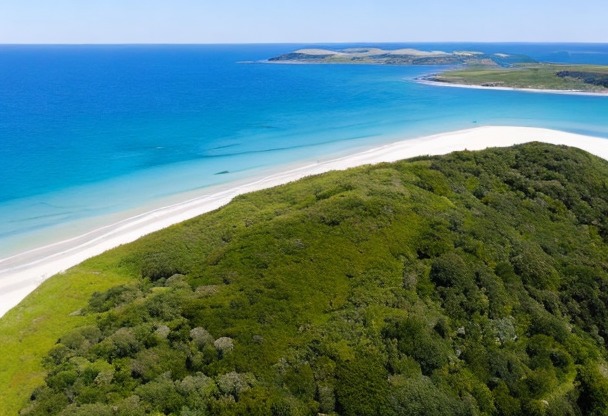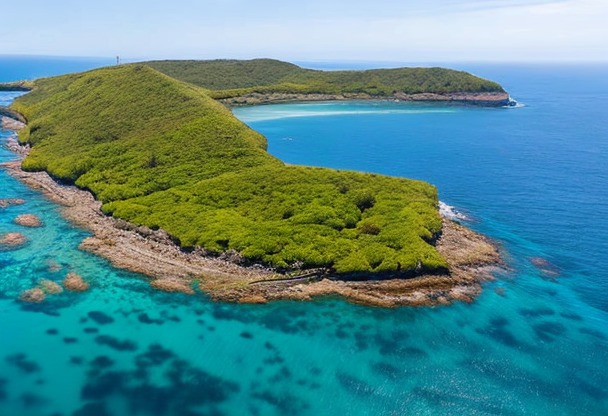WHEN TO TRAVEL TO Niué
Choosing the right time for your trip to Niue can make all the difference. It's important to consider weather elements, seasonal events and busy tourist periods to maximize your travel experience.

Location




Climate
Major cultural events in Niué
Throughout the year, Niué offers a variety of cultural events celebrating the richness of the local heritage. Learn more about these events, and plan your trip to take part in these highlights of Niue life.Show Day
This annual event takes place in June and showcases local agriculture, trade and crafts. Visit Show Day also offers activities such as sports competitions, equestrian shows and traditional dance demonstrations. It's an excellent opportunity to discover the culture of Niué.National holiday
Every year, October 19 marks the celebration of the Niué National Daycommemorating the country's independence from New Zealand in 1974. The day is marked by official ceremonies, parades, musical and cultural performances.Taoga Niue Festival
Held every two years in November, the Taoga Niue Festival celebrates the country's arts, culture and heritage. The program includes art exhibitions, workshops, film screenings and, of course, traditional dance and music performances.Public holidays and closures in Niué
It's important to be aware of public holidays during your stay in Niue, as they can lead to closures of banks, stock exchanges, shops and tourist sites. Here is a non-exhaustive list of the main public holidays in Niué:- New Year January 1st
- Constitution Day March 26
- Good Friday and Easter Monday variable dates (March or April)
- Queen's Birthday First Monday in June
- Show Day Variable date in June
- National holiday October 19
- Christmas December 25
- Boxing Day December 26
Low and high season in Niue
Like many tourist destinations, Niue experiences periods of low and high season which influence accommodation rates, transport availability and the number of visitors to the island. To make the most of your stay, it's important to take these periods into account when planning your trip.High season
There Niué's high tourist season generally runs from May to October.These are the driest, sunniest months of the year. During this period, temperatures are pleasant (around 25°C) and weather conditions are ideal for water sports and outdoor activities. This is also the period when most of the major cultural events mentioned above take place. However, high season also means higher accommodation rates and more tourists. It is therefore advisable to book your transport and accommodation in advance to avoid unpleasant surprises.Low season
There The low tourist season generally runs from November to April.Niué is experiencing a period of more frequent rainfall and increased humidity. Nevertheless, temperatures remain pleasant (around 28°C) and some outdoor activities are still possible despite the rain. If you choose to travel during the low season, you can take advantage of reduced rates on accommodation and enjoy a quieter, more authentic atmosphere. However, it's important to bring appropriate equipment (raincoat, waterproof footwear) so that you can take full advantage of the activities and visits on offer despite the vagaries of the weather.Insurance
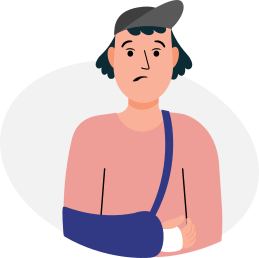
Your credit card does not cover you in all situations, that is whyIt is essential to take out insurance before you leave to avoid any unpleasant surprises. If you need to see a doctor or be hospitalized, in some countries, medical costs are very high and you will then find yourself having to pay several thousand euros.
Our partner Chapka Insurance proposes the contract CAP ASSISTANCE 24/24 with many essential guarantees.
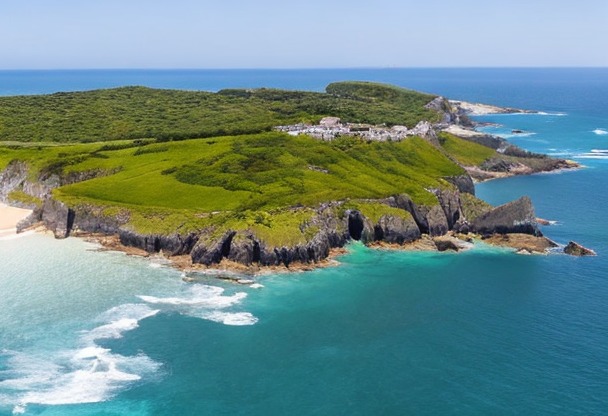
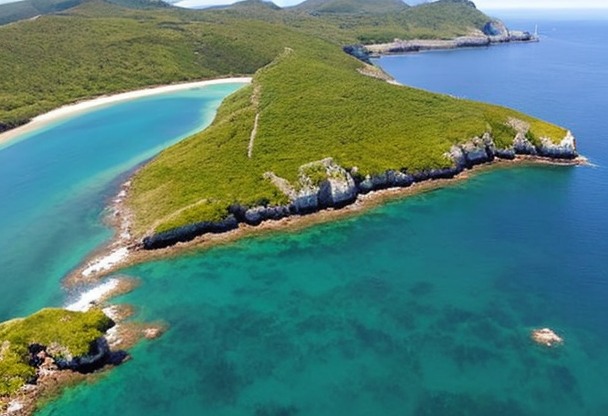
Flights

Your flight has been cancelled or delayed ?
You may be eligible for a compensation of up to €600 ! For this, lawyers are responsible for handling your claim with the airline and are only paid when the reimbursement is effective.
In conclusion, no financial risk for you, only advantages!
Immigration statistics for Niué
Niue is a small island in the Pacific Ocean, around 2,400 km northeast of Laos. New Zealand. Despite its small size and remoteness, Niue attracts increasing numbers of visitors every year from the four corners of the globe to enjoy its breathtaking scenery, rich culture and fast-developing tourist infrastructure. According to available data, the total number of immigrants to Niue has increased in recent years. In fact, there will be an average of 150 immigrants per year between 2015 and 2020, an increase of almost 25% compared with the previous period.Immigrants' geographical origins
The majority of people who choose to settle in Niue come from the Oceania region. Other immigrants come from different continents, such as :- Asia
- North America
- Europe
- Africa
Reasons for immigration
The main reasons why people immigrate to Niue are as follows:- The work Many foreigners come to Niué to work in various sectors, such as tourism, fishing and agriculture.
- Education Some immigrants choose to settle in Niue to continue their studies or to teach in one of the local schools.
- Retirement The quality of life, climate and tranquility of the island also attract retirees looking for a peaceful place to spend their golden years.
Most popular visas in Niue
To enter Niue, you need to obtain a visa corresponding to the reason for your stay. Here are the most commonly requested visas:- Visitor visa Niue visa: This visa is intended for tourists wishing to stay in Niue for a maximum of 30 days. It can be extended once on site.
- Temporary work visa This visa allows foreigners to work in Niue for a maximum of one year, with the possibility of renewing the visa if the work contract is extended.
- Student visa This visa is granted to foreign students enrolled in a school in Niue for a period determined by the duration of their studies.
- Permanent residence visa Niue resident visa: this visa is intended for people wishing to settle permanently in Niue. To obtain it, it is generally necessary to meet a number of conditions, such as holding a stable job, having family ties on the island or demonstrating an ability to integrate into Niue society.
Visa requirements and procedures
To obtain a visa for Niue, applicants must meet certain conditions and follow a specific procedure. Documents generally required include:- A valid passport
- A passport photo
- Proof of sufficient financial resources to cover accommodation costs
- Proof of accommodation
- Round-trip air ticket (for short-term visas)
International tourism figures for Niué
In addition to immigration, Niue is also experiencing a boom in international tourism. Figures show a steady growth in the number of tourists visiting the island every year. Between 2015 and 2020, the annual number of visitors increased by nearly 35%from 7,000 to 9,500 people. This positive trend is due in particular to the development of tourism infrastructures (hotels, restaurants, activities, etc.) and the active promotion of Niué as a vacation destination by local authorities and tourism operators.Breakdown of visitors by geographic origin
Tourists to Niué come mainly from :- New Zealand
- Australia
- UNITED STATES
- Europe
